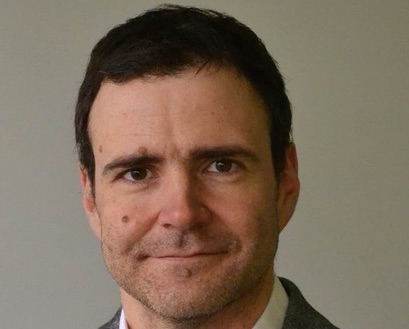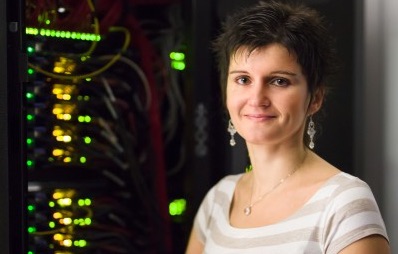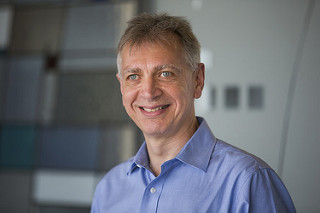
Johannes Gärtner
Johannes Gärtner is CEO of Ximes GmbH, a company offering software and consulting services regarding workforce/working hours issues for clients in a wide variety of industries. XIMES was founded in 1997 by Johannes Gärtner und Sabine Wahl, and has offices in Vienna and Erlangen. Additionally, Johannes Gärtner is Adjunct Associate Professor at TU Wien and was a Board Member of the Working Time Society. His main research interests in timetabling include rotating workforce scheduling, shift design, break scheduling, and software/tools for workforce scheduling.
website - linkedin
Scheduling Matters - Some Potential Requirements for Future Rostering Competitions from a Practitioner's View
Scheduling algorithms have made impressive advances. Many objectives can be reached within reasonable runtime, as the previous International Nurse Rostering Competitions (INRCs) showed. As usual, these improvements have raised practitioners' expectations, who, in this case, are consultants and researchers in working time and shift scheduling.
This talk highlights potential additional requirements in two areas and provides input for possible future rostering competitions. Firstly, some requirements regarding scheduling objectives are raised that are important for people – because it is not sufficient to simply fill rosters, and income, health, safety and well-being are heavily influenced by work schedules. It is therefore necessary to include rules that consider specific features of shifts and sequences of work (e.g., average hours per week). Secondly, a vision of a meta-requirement is raised. It is not enough to fulfill the specified requirements as effectively as possible. In a real-life setting, quite often requirements can be changed. Consequently, it would be advantageous to understand which schedule requirements cause bad solutions in order to be able to identify possible changes that encourage better solutions.

Louis-Martin Rousseau
Louis-Martin Rousseau is a full professor of Operations Research in the Department of Mathematics and Industrial Engineering at École Polytechnique de Montréal. Since February 2016 he holds the Canada Research Chair in Healthcare Analytics and Logistics (HANALOG.ca), which studies complex and/or interconnected logistics problems in the field home care services, cancer treatment, and operating room management. Professor Rousseau pursues research in the field of hybridization of classical operational research techniques (OR) and Constraint Programming (CP), rooted in the field Artificial Intelligence (AI). In 2002 he founded the company Planora that, before its acquisition by JDA in 2012, proposed a scheduling SaaS solution to numerous vertical markets. He is also a fellow Element-AI, which aims to bring artificial intelligence solutions to a broad scope of organizations. For more details have a look at http://hanalog.polymtl.ca/person/louis-martin-rousseau/.
twitter - linkedin
Graphical Optimization Models to address the Multi-Activity Shift Scheduling Problems
The shift-scheduling problem was originally introduced by Edie in 1954 in the context of scheduling highway toll booth operators. It was solved a short time later, by Georges Dantzig [6], using a set covering formulation. However, the Multi-Activity Shift Scheduling (MASSP) version of that problem, where one not only needs to schedule when employees are working or resting, but more precisely, what activity they are performing, still remains a challenge. During this invited lecture, we will recall the turning points of this 60-year journey, focusing particularly on the efforts of the last decade to solve MASSPs. We will demonstrate our formal languages can generate Graphical Models that can be used in Integer Program, Constraint Program, Branch and Price and Meta heuristics. We also discuss results on Multi-activity Tour Scheduling Problems and variants with stochastic demand.

Hana Rudová
Hana Rudová is an associate professor in Computer Science at Masaryk University, Faculty of Informatics in Czech Republic. She works on various problems broadly related to scheduling such as educational timetabling, scheduling for distributed environments or transport planning. Her work concentrates on approaches which allow to solve practical problems such as course timetabling in UniTime system, computer job scheduling in CERIT national infrastructure or data transfer planning for multimedia transmissions in CoUniverse. She has strong relationship with the PATAT conference and its community as the member of the PATAT steering committee and the co-chair and the organizer of the PATAT 2006 conference in Brno, Czech Republic.
website
University course timetabling and International Timetabling Competition 2019
University course timetabling belongs to classical problems which have been studied for many years by many researchers. This plenary talk will outline existing research and emphasize new research directions and challenges in this area. It is clear that the organization of international competitions has the high impact on the timetabling research. We intend to discuss the organization of the new International Timetabling Competition (ITC 2019) with the aim to motivate further research on complex university course timetabling problems coming from practice. Our goal is the creation of rich real-world data sets. Thanks to the UniTime timetabling system, we can collect a strong set of data with diverse characteristics which we will discuss in the talk. The key novelty lies in the combination of student sectioning together with standard time and room assignment of events in courses. To make the problems more attractive, we remove some of the less important aspects of the real-life data while retaining the computational complexity of the problems.

Pascal Van Hentenryck
Pascal Van Hentenryck is the Seth Bonder Collegiate Professor of Engineering at the University of Michigan. He is a professor of Industrial and Operations Engineering, a professor of Electrical Engineering and Computer Science, and a core faculty in the Michigan Institute of Data Science. Van Hentenryck's current research is at the intersection of optimization and data science with applications in energy, transportation, resilience, and computational social science.
website - twitter - linkedin
Optimizing Mobility Services
The availability of massive data sets, combined with progress in communication technologies, connected and automated vehicles, and analytics, has the potential to transform mobility for entire population segments. This talk reviews this opportunity, from its potential societal impact, to the development of new mobility services, and the science and technology powering them. In particular, the talk presents recent developments in on-demand multimodal transit systems and community-based trip sharing on real case studies, focusing on the underlying design, scheduling and routing problems.